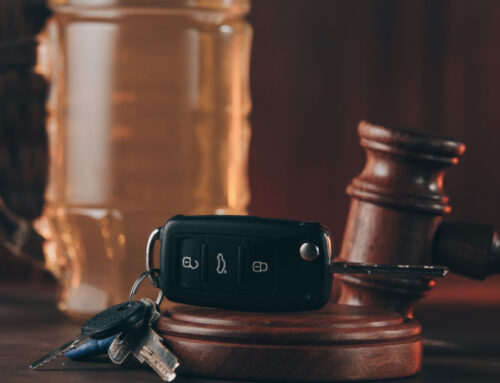When you are facing a DUI charge, you need to make informed decisions based on accurate information and reliable legal advice. As a former Arizona criminal court judge, I have seen far too many cases of unrepresented defendants making extremely costly mistakes due to having fundamental misunderstandings of the law. Unfortunately, there are several myths about DUI cases that have been popularized online and on television, and many defendants rely on these myths only to later discover that their defense “strategies” were severely misguided.
Another challenging aspect of facing a DUI charge in Arizona is that Arizona’s DUI laws are very different from the laws of other states. In some cases, while the information might be accurate if you lived somewhere else, relying on that information will not help you – and may even hurt you – if you live in Phoenix or any of the surrounding areas.
So, what is true and what isn’t when you are facing an Arizona DUI? Here is what you need to know:
Myth #1: A DUI is Not a Serious Crime.
Truth: In Arizona, a DUI is either a felony or a misdemeanor, and all DUIs carry steep penalties.
In some states, a DUI is considered a relatively minor crime. In fact, in some states, DUI isn’t a crime at all but instead is classified as a “traffic offense” similar to a speeding or reckless driving. However, in Arizona, all DUIs are criminal offenses, and the penalties for a DUI conviction can be severe.
A conviction for any DUI offense may result in a jail sentence, installation of a certified ignition interlock device, alcohol classes, suspension of Arizona driving privileges, and fines. If you already have two or more DUIs on your record, or if you were driving with a child under the age of 15, you can be charged with an aggravated DUI – which is a felony offense.
Myth #2: When You Get Arrested for DUI, Your Driver’s License is Suspended Automatically.
Truth: You may lose your privilege to drive in Arizona following a DUI arrest unless you take the necessary steps to protect it.
While it is true that you can lose your privilege to drive in Arizona before your DUI case concludes, it is also true that you can fight to keep your Arizona driving privileges valid. To do so, you must request an administrative hearing at the Arizona Motor Vehicle Department (MVD) within 15 days of your arrest. When you request a hearing, the suspension is “stayed,” and you can continue to drive until the outcome of the hearing is determined.
Myth #3: Breathalyzer Test Results are Unreliable, and Will Be Thrown Out in Court.
Truth: Breathalyzer test results are not inherently unreliable, but there will be grounds for filing a motion to suppress them in many cases.
Some DUI attorneys tout their ability to challenge breathalyzer test results online, and, to be clear, there are many potential ways to challenge your BAC reading from an Intoxilyzer 8000 in Arizona. However, breathalyzer test results are not inherently unreliable, and they routinely serve as crucial evidence for the prosecution in Arizona DUI cases. To determine if you have grounds to challenge your BAC reading, your attorney will need to request the device’s calibration records and examine various other pieces of information that are specific to the facts of your case.
Myth #4: You Should Refuse to Take a Breath Test
Truth: Refusing to take a breath test is an “implied consent violation” that can lead to a one-year suspension of your Arizona driving privileges and other consequences.
On the other end of the spectrum, some people believe that it is best to refuse to take the breathalyzer because blowing above 0.08 percent will effectively amount to a guilty plea. However, as mentioned above, there will often be ways to challenge the validity or reliability of a BAC reading, and, also, it is against the law to refuse a breath test in Arizona. This is known as an “implied consent violation,” and you can be punished for an implied consent violation even if you are not found guilty of DUI.
Myth #5: You Can’t Be Convicted if the Police Didn’t Read Your Rights.
Truth: The police do not have to read your rights immediately, and they do not have to read them at all in many cases.
“You have the right to remain silent.” We’re all familiar with this refrain from television, and it is deeply rooted in the law. As a result of the U.S. Supreme Court’s decision in Miranda v. Arizona, the police are required to read a criminal suspect his or her rights prior to conducting a custodial interrogation.
However, unless and until you are interrogated in custody, the police do not have to read your Miranda rights. Furthermore, even if the police fail to timely read your rights, this does not have any immediate or guaranteed impact on your DUI case. Your attorney may be able to raise the Miranda violation in your defense, but this requires affirmative steps and a clear understanding of the law.
Myth #6: If You Were Driving Drunk, There is Nothing You Can Do to Avoid a Conviction.
Truth: There are many defenses that you can assert regardless of whether or not you were driving under the influence.
In DUI cases, the State has the burden of proof. Unless the prosecutor can convince the jury that you are guilty beyond a reasonable doubt, you do not deserve to be convicted. This is true, regardless of whether you were driving under the influence when you got arrested.
Several DUI defenses apply even in cases in which the defendant was driving drunk at the time of his or her arrest. To learn more, you can read: What are Defenses to Driving Under the Influence (DUI) in Arizona?
Charged with DUI? Schedule a Free Consultation Today with Our DUI Lawyer in Phoenix
If you are facing a DUI charge in Arizona, it is vital that you speak with a Phoenix DUI lawyer promptly. To learn more about the defenses you may have available, call us at 480-405-7922 or request a free consultation online now.






